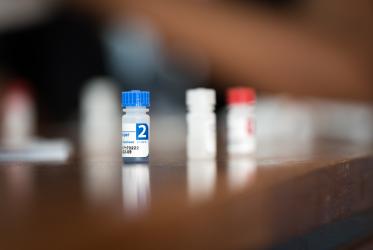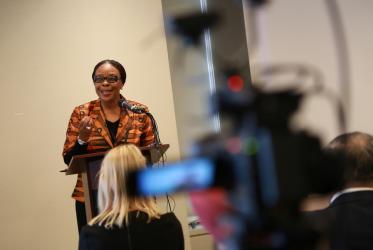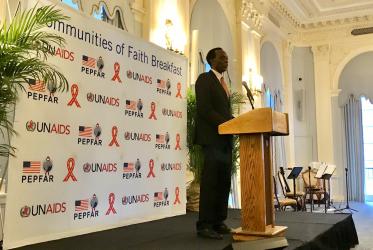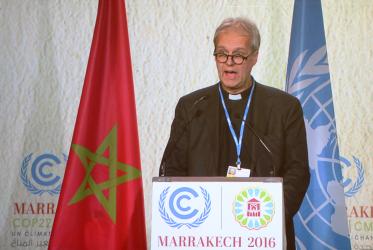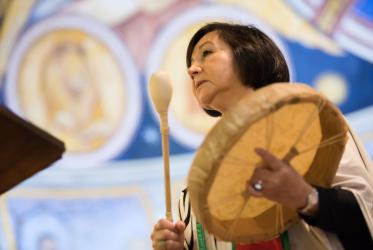Displaying 1 - 20 of 24
In Zambia, foreign investors complicate “economy of life”
06 September 2017
GEM School: integrating theology and economics
05 September 2017
Ecumenical Patriarch: Survival of God’s creation is at stake
17 November 2016
Faith groups march for climate justice
15 November 2016
Faith communities explore concrete climate action at COP22
10 November 2016
Advocates urge transition to low-carbon economy, clean energy
09 November 2016
Zambia: “On HIV, we do not compete. We work together.”
20 October 2016
Kenya: Voice of faith communities crucial in overcoming HIV
14 October 2016
Land rights focus of panel discussion
17 November 2015
Churches have a special role to play in HIV response
18 November 2014
